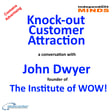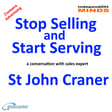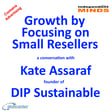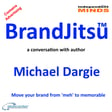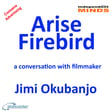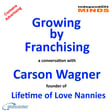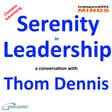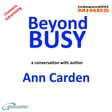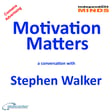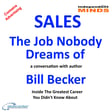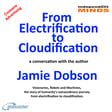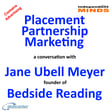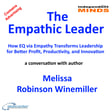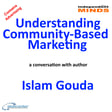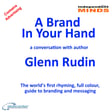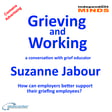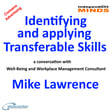
Understanding Marketing Matrix – a conversation with Christina Inge.
Christina Inge is a Technologist for Good. Christina is the founder of Thoughtlight a Digital Agency, in Boston Massachusetts; the author of two bestselling books a b and a and an Instructor, in Professional & Executive Development, for Harvard University Division of Continuing Education.
In this interesting episode, of the Independent Minds Christina explains to host Michael Millward why marketers need to listen to the data.
We have never had as much information about how our customers and potential customers interact with us as their suppliers. Christina explains the different types of data that marketers must have access to and how understanding the different types of data helps marketers to map the customer journey with confidence.
The Independent Minds is made on Zencastr.
Zencastr is the all-in-one podcasting platform, on which you can create your podcast in one place and then distribute it to the major platforms like Spotify, Apple, and Google. It really does make creating content so easy.
If you would like to try podcasting using Zencastr visit zencastr.com/pricing and use our offer code ABECEDER.
Find out more about both Michael Millward and Christina Inge at Abeceder.co.uk
Travel
Christina Inge is based in Boston Massachusetts, USA.
If you would like to travel the worlds the best place to make your travel arrangements is The Ultimate Travel Club, which is where you can access trade prices for flights, hotels and holidays. Use my offer code ABEC79 to receive a discount on your membership fee.
Matchmaker.fm
Thank you to the team at Matchmaker.fm the introduction to Christina.
If you are a podcaster looking for interesting guests or if like John, you have something very interesting to say Matchmaker.fm is where matches of great hosts and great guests are made. Use our offer code MILW10 for a discount on membership.
Three the network
If you are listening to The Independent Minds on your smart phone, you may like to know that Three has the UK’s Fastest 5G Network with Unlimited Data, so listening on Three means you can wave goodbye to buffering.
Visit Three for information about business and personal telecom solutions from Three, and the special offers available when you quote my referral code WPFNUQHU.
Being a Guest
If you would like to be a guest on Fit For My Age, please contact using the link at Abeceder.co.uk.
We recommend that potential guests take one of the podcasting guest training programmes available from Work Place Learning Centre.
We appreciate every like, download, and subscriber.
Thank you for listening.
